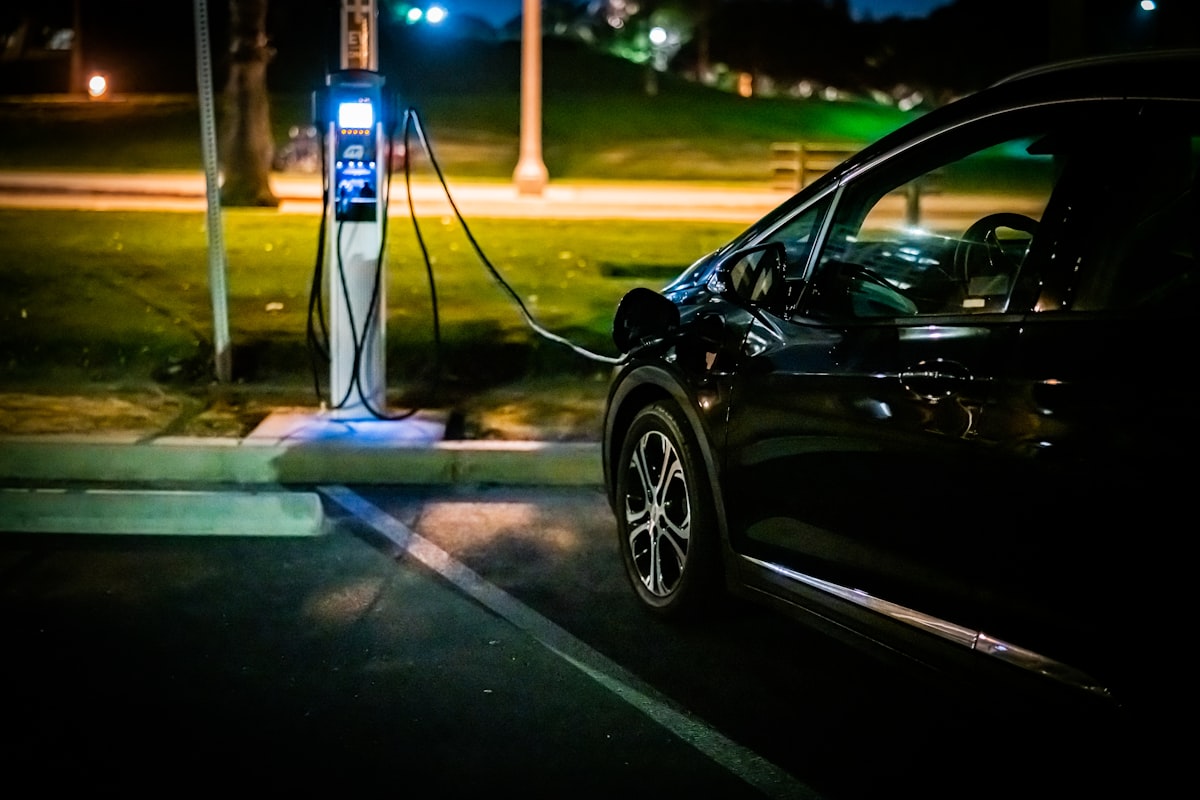A Green Revolution on Wheels: How New Pollution Standards are Steering the U.S. Toward Sustainability
The EPA's final vehicle standards promise a cleaner future with electric and hybrid cars leading the charge. But is this ambitious plan a smooth ride or a road filled with political speed bumps?

The Environmental Protection Agency (EPA) decided it was time to give the auto industry another nudge (more like a friendly shove) toward a greener future. This Wednesday, they rolled out the final pollution emissions standards, which – surprise, surprise – have been softened up from last year's draft. The message? By 2032, gas-guzzlers are out; electric and hybrid vehicles are in.
Look, it's no secret that planet Earth has been riding the struggle bus thanks to climate change. Despite the barrage of conspiracy theories and outdated talking points from the fossil fuel fan club and their pals (yes, Donald, we're looking at you), the only exit off this apocalyptic highway is cutting emissions and kissing fossil fuels goodbye. The Biden Administration’s latest move is like trying to put out a dumpster fire with a water pistol – it's a start, but the blaze is raging on.
The new game plan involves dialing down gas-powered vehicle sales, pushing for a future filled with electric, hybrid, plug-in hybrid, and "advanced" gasoline vehicles by the 2032 model year. The transition kicks off in 2027, but the real pedal to the metal action won't start until after 2030. This is a stark contrast to last year's ambitions, which had electric vehicles (EVs) taking up two-thirds of car sales by 2032.
Why the backpedal, you ask? Well, it seems like an election-year compromise by Biden, who’s trying to juggle fighting climate change with securing auto union endorsements for 2024. The unions were sweating bullets over a faster shift to EVs, fearing job losses since EVs need fewer people to put them together compared to traditional cars.
Last year, United Auto Workers (UAW) President Shawn Fain wasn't exactly cheering for Biden's reelection, all thanks to these EV transition jitters. But after getting a sneak peek at the revised playbook, the UAW is now rallying behind Biden. They’re applauding the EPA for taking a more measured approach, one that apparently considers the livelihood of workers cranking out internal combustion engines (ICEs).
And before the internet trolls and your conspiracy-theorist uncle start ranting, let's get one thing straight: these rules aren't about banning your beloved gas-powered chariots. They're about pushing carmakers to clean up their act across their new models. Sorry, folks, but your used gas guzzler isn't going anywhere... yet.
The EPA is tossing around some big numbers to sweeten the deal, claiming this overhaul will churn out $99 billion in benefits and save the average Joe (or Jane) about $6,000 in fuel and maintenance costs over their vehicle's lifespan. They're also talking a big game about slashing 7.2 billion tons of CO2 emissions by 2055 and dishing out nearly $100 billion in annual societal perks. Not to mention, they're promising cleaner air that could prevent up to 2,500 premature deaths in 2055 and reduce a slew of health issues.
Biden, ever the optimist, penned a note reminiscing about his 2020 dream that half of all new cars and trucks sold in 2030 would be emissions-free. He pats himself on the back for rallying American automakers and workers, boasting about the hundreds of new factories and billions in investments that have sprouted across the nation. His vision? A fleet of clean, American-made cars and trucks leading the global market.
The Biden Administration is steering the U.S. auto industry toward a cleaner, greener future, albeit at a pace that's more cautious crawl than full-throttle sprint. It's a balancing act between innovation and job preservation, with a hefty dose of political maneuvering. Let's just hope this roadmap gets us to our destination before the planet decides it's had enough of our antics.





